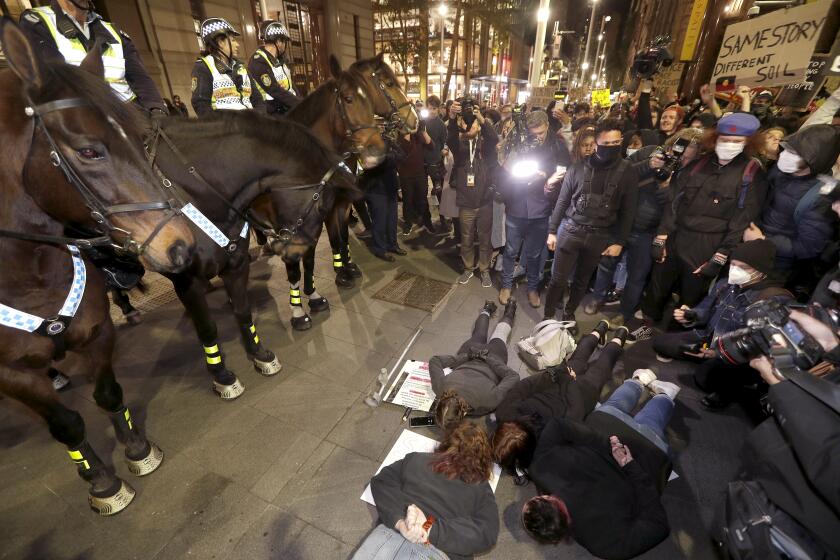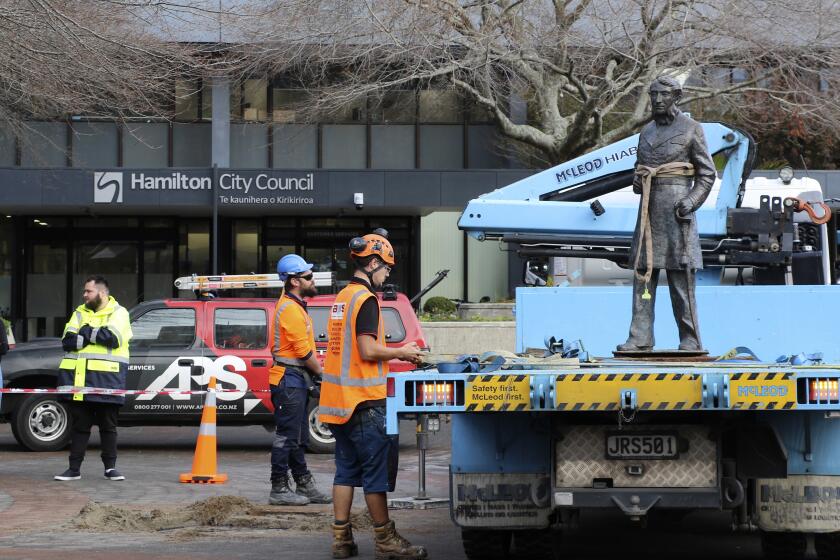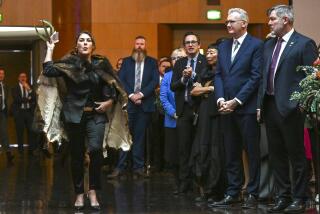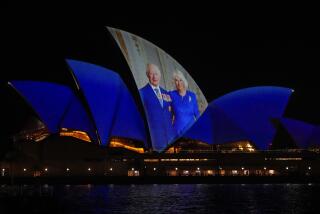Australia’s prime minister apologizes for claiming there was ‘no slavery’ in his country
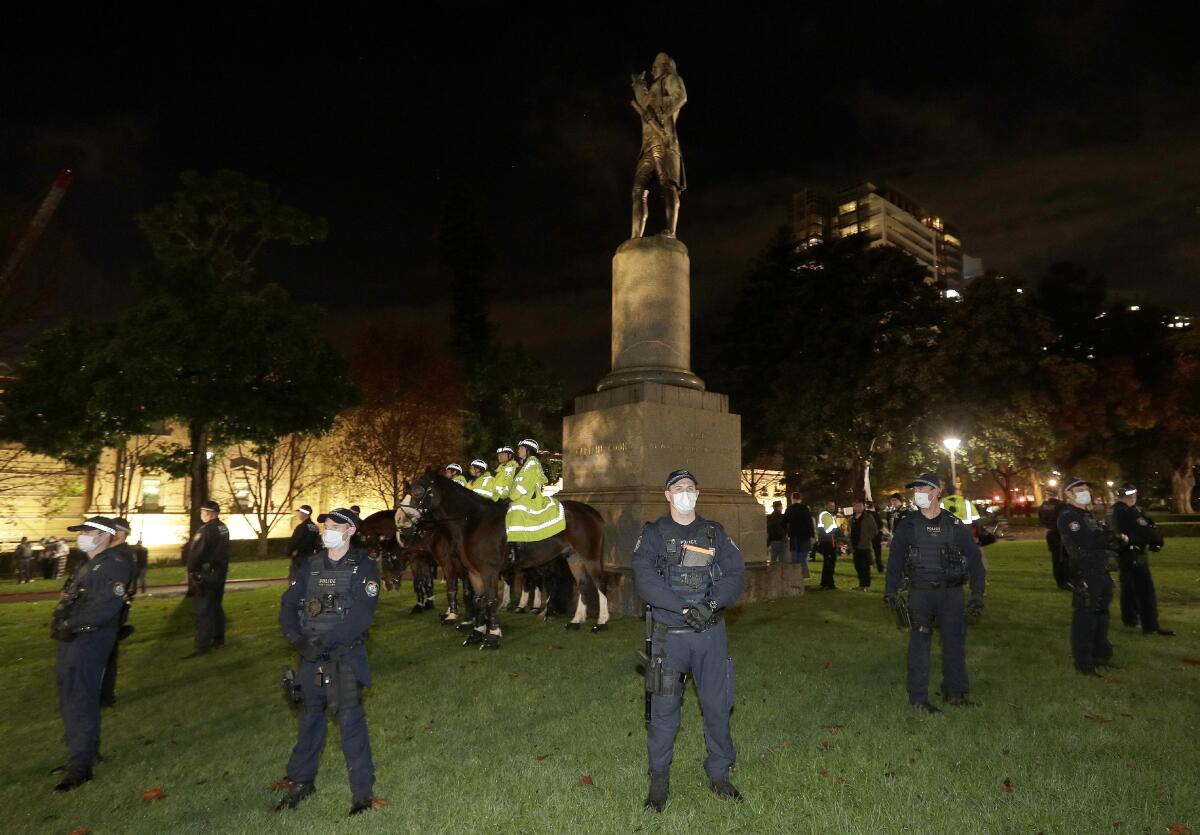
- Share via
CANBERRA, Australia — Australia’s conservative prime minister apologized Friday to critics who accused him of denying the country’s history of slavery, as a state government announced that it would remove a former Belgian king’s name from a mountain range as part of a global reexamination of racial injustice.
Prime Minister Scott Morrison had defended the legacy of British explorer James Cook, who in 1770 charted the site of the first British penal colony in Australia, which became present-day Sydney.
Morrison, who as a member of the Australian Parliament represents the Sydney electoral district of Cook, described the British naval hero Thursday as “very much ahead of his time” and urged people calling for the district to be renamed to “get a bit of a grip on this.”
“While slave ships continued to travel around the world, when Australia was established ... it was a pretty brutal place, but there was no slavery in Australia,” Morrison told Sydney Radio 2BG.
But he made a rare apology Friday after critics pointed out that tens of thousands of South Pacific islanders had been forced to labor on Australian sugar cane plantations in the 19th century and Australian indigenous people had been forced to work for wages that were never paid.
Satirical website Betoota Advocate ran a headline, “‘Australia Never Had Slavery,’ Says P.M. Who Thinks The Sugar Cane Just Cut Itself for 100 Years.”
U.S. protests over George Floyd’s death have galvanized movements against racism, police brutality and inequalities in other liberal democracies.
“My comments were not intended to cause offense, and if I did, I deeply regret that and apologize for that,” Morrison said, adding that slavery was not lawful in the original Sydney colony.
While Morrison was seeking public restraint in reevaluating historical figures in response to George Floyd’s death at the hands of Minneapolis police officers, the Western Australia state government announced it would rename the King Leopold Ranges in Australia’s northwest.
State Lands Minister Ben Wyatt, an indigenous Australian, described Belgium’s King Leopold II as an “evil tyrant” who should not be honored.
The announcement came after a statue of the monarch, who forced many people into slavery in Congo, was defaced and removed from the Belgium city of Antwerp.
The New Zealand city of Hamilton removed a bronze statue of the British naval officer for whom it is named — a man who is accused of killing indigenous Maori people in the 1860s.
Morrison’s denial of Australian slavery came as a second blow to many indigenous Australians. The first was his statement after Floyd’s death expressing gratitude that Australia did not share the U.S. problem of police violence against Black people.
Aborigines account for 2% of Australia’s adult population and 27% of its prison population, with more than 340 indigenous Australians dying in police or prison custody in the past three decades. One Aboriginal Australian inmate, David Dungay, died in similar circumstances to Floyd at a Sydney prison in December 2015, pleading for breath as officers kept him face down on the prison floor.
A statue of Cook in a Sydney park was a focus of anti-racism protesters in Sydney on Friday. A cottage built by Cook’s parents in England in 1755 that was moved to the Australian city of Melbourne in the 1930s has also been targeted by activist vandals.
More to Read
Sign up for Essential California
The most important California stories and recommendations in your inbox every morning.
You may occasionally receive promotional content from the Los Angeles Times.
